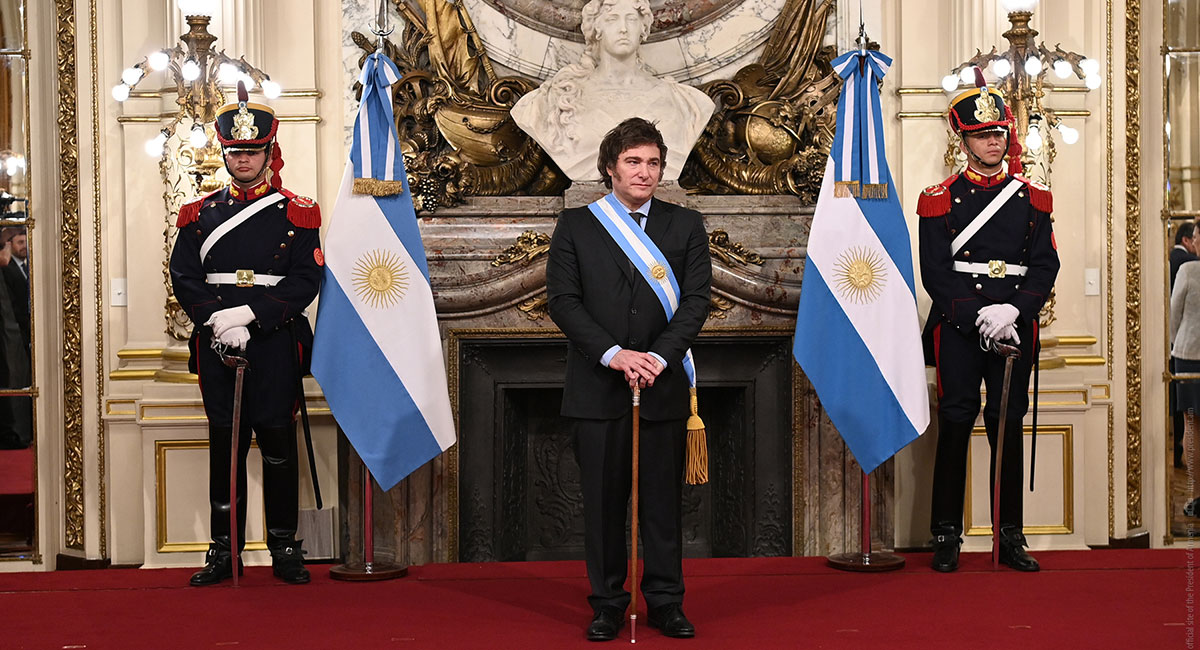Some of the most successful attempts at free-market reform in the last half-decade faced terrible odds. But several factors—the depth of the crisis, visionary leadership, policy consistency, and a bit of good luck—helped them through. That was the case, for instance, of New Zealand in the 1980s and early 1990s, Thatcher’s Britain in the 1980s, Estonia in the early 1990s, and Ireland in the late 1980s and the 1990s.
If Argentina´s Javier Milei defeats the entrenched interests, he will go down in history alongside those reformers—and even ahead of some of them. Those interests include a large part of Argentina’s Congress, the courts, unions, media, academia, and some of the business community.
That is why Milei—who inherited an inflation of more than 200 percent, a central bank with no reserves, a shrinking economy, a debt amounting to 85 percent of gross domestic product (including $46 billion owed to the International Monetary Fund), and a poverty rate not far from 50 percent—needs to produce some early results that give the 60 percent of the population supporting him a reason to keep the faith despite the inevitable pain that comes from undoing decades of populism.
Milei is often described by the international media as a right-wing populist like Hungary’s Orban, Brazil’s Bolsonaro, or even Donald Trump. Although he shares their commitment to the cultural fight against the left and has a confrontational style as well as an eccentric personality, this bright economist steeped in the Austrian school of economics departs from them in his understanding of republican institutions and his devotion to comprehensive free-market reform. He models himself on Juan Bautista Alberdi, the intellectual and politician who inspired the 19th-century constitution that turned Argentina into an economic powerhouse long ago.
Milei has begun his tenure by delivering anti-inflationary shock therapy that includes a 54 percent devaluation of the peso, killing pending government construction projects, and lifting price controls, while he wrestles with colossal amounts of short-term debt issued by the central bank, a major source of monetary expansion in recent years. He has also issued a mega-decree using a Peronist constitutional provision the Peronists themselves resorted to hundreds of times. Yet the Peronists now accuse Milei of using authoritarian methods. Still, the decree, which deregulates and liberalizes areas such as trade, labor, real estate, and retail, needs to pass through Congress.
For the moment Milei has put aside the plan to abolish the central bank and adopt the dollar as legal tender (or let the market pick the currency) but insists he will take up the plan once the economy is stabilized. Another inconsistency to which some critics point is that his omnibus bill includes temporary tax hikes on the productive agricultural sector. The aim is to eliminate the fiscal deficit, part of his effort to tackle inflation and meet the conditions of the 2018 IMF bailout. The devaluation of the peso would offset the temporary tax hikes, and the aim is to have low taxes in line with a much-reduced government budget.
The unions have already obtained a court injunction against the labor reform and called for a national strike on January 24.A tougher challenge will be Congress, where the decree, which is already in force, could be rejected or watered down. Milei’s party controls 38 out of 257 seats in the lower house and seven of 72 seats in the senate and can count on the support of PRO, the party of former president Mauricio Macri. But that’s still not enough to see the reforms through. Milei will need the support of the Unión Cívica Radical, which has sent mixed signals. The Peronist bloc controls 102 seats and has strong connections to several influential governors.
If the reforms are not approved, Milei might call a nonbinding referendum and force the political class—which he calls the “caste”—to face a population desperate for change.
Trying to turn Latin America’s most populist country into a libertarian model for the world entails an audacity of surreal proportions. If he succeeds, he will go down as one of the most transformative presidents. If he fails, then Peronism, the movement responsible for Argentina’s demise, will be back in power for many years, and it will take decades for free-market reform to regain prestige.













